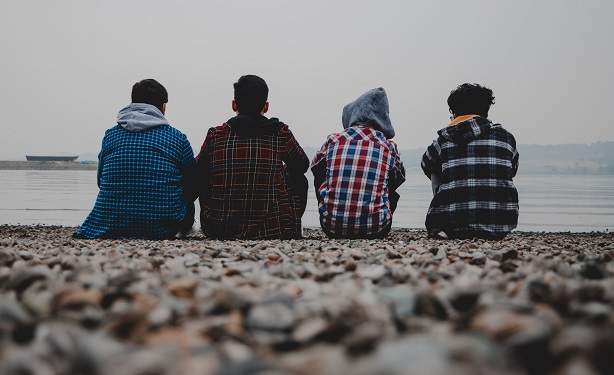Exploring the Crisis Facing Teenage Boys: Insights from "Adolescence"
Date: Thursday 03 Apr 2025
'More than half of 16-to-25-year-olds have spoken to a GP about their mental health'
The Netflix series "Adolescence" highlights teenage boys' struggles with toxic masculinity and mental health issues. As young men share their perspectives, they reveal the urgent need for education, support, and open dialogue about the pressures they face. Activists and charities like Beyond and Spark UK are taking proactive steps to provide resources and advocate for change, promoting healthier environments for young men.

The Netflix series "Adolescence," crafted by Stephen Graham and Jack Thorne, has captivated audiences in the UK, highlighting the troubling climate for teenage boys navigating a world steeped in toxic masculinity and online hostility. At its heart lies the story of Jamie Miller, a 13-year-old entangled in a tragic murder case, sparking broader dialogues about the societal pressures young men face today, including internet misogyny and the relentless demands of social media.
As the drama unfolds, the real-life consequences of ignoring young men's issues have been starkly illustrated in media headlines that convey urgency and despair. Topics like Andrew Tate's influence and the alarming rates of sexual harassment in schools reflect a significant societal crisis, compelling discussions on how to alleviate such burdens.
However, it is vital to seek solutions from the boys themselves. In a partnership with Beyond, a youth mental health charity, Men's Health delved into the perspectives of young men on their challenges and the support they need. Founder Jonny Benjamin MBE's own struggles with severe depression underscore the critical nature of timely mental health intervention, as many boys face daunting delays when seeking help.
"I was referred to the Child and Adolescent Mental Health Services (CAMHS) and assessed by a psychiatrist, but was unable to access further help due to ‘massive waiting times." Jonny Benjamin MBE
The pandemic exacerbated mental health issues among the youth, with NHS data revealing a deteriorated state for over half of young people aged 17 to 23. Charities like YoungMinds and Spark UK are actively addressing these concerns by providing resources and platforms for teenagers to express their experiences, explore self-care, and advocate for change in their schools.
Young activist James Wilson reflects on the shock of discovering a pattern of misogyny at his school, igniting him to campaign for awareness around gender-based violence. He noted the importance of confronting these issues in educational settings, debunking the myth that discussing sensitive topics could sow harmful ideas. His efforts illuminate the need for open conversations regarding masculinity and mental health.
Conversations around masculinity and societal pressures are vividly echoed by young men like Jeremy Lyons and James Wilson, who are engaging peers in workshops about gender equality. They articulate the spectrum of masculinity, recognising the damaging stereotypes that young boys internalise and the importance of creating safe spaces for dialogue about mental health and healthy relationships.
Among their peers, the pressures of exams and societal expectations weigh heavily, as expressed by mental health campaigners Ben West and Conor Warren. They highlight the unrealistic narrative surrounding career paths imposed by educational systems that often prioritise academic achievements over emotional wellbeing.
"After the pandemic, my friends and I said to ourselves, 'What do we want from mental health support, in an ideal world?' Conor Warren
Their critiques of the education system reveal a deep-rooted issue—mental health education is often sidelined, leading to students feeling increasingly overwhelmed. They advocate for a reimagined approach to education that prioritises mental health alongside academic success to genuinely support students’ varied journeys.
Shocka, a youth mentor, recalls meeting Byron, a budding rapper who uses writing as a therapeutic outlet. Their candid discussions about mental health reveal a powerful connection, wherein Byron learns to articulate his experiences through lyrics, providing him a sense of relief and understanding.
The overarching narrative is one of transformation and hope. As these young men confront their fears, societal expectations, and internal struggles, they forge paths forward, advocating for openness, connection, and change within their communities. They challenge the narrative that vulnerabilities are weaknesses, proving that expressing feelings and supporting one another creates bonds that lead to a more compassionate understanding of manhood.
You can read the full article here: https://www.menshealth.com/uk/mental-strength/a64294507/teenage-boys-in-crisis-adolescence/
Learn how the How the Blethr platform can be used by teen males aged 13 and older via this link
You can ask BraveheartGPT any questions on Teenage mental health below.

